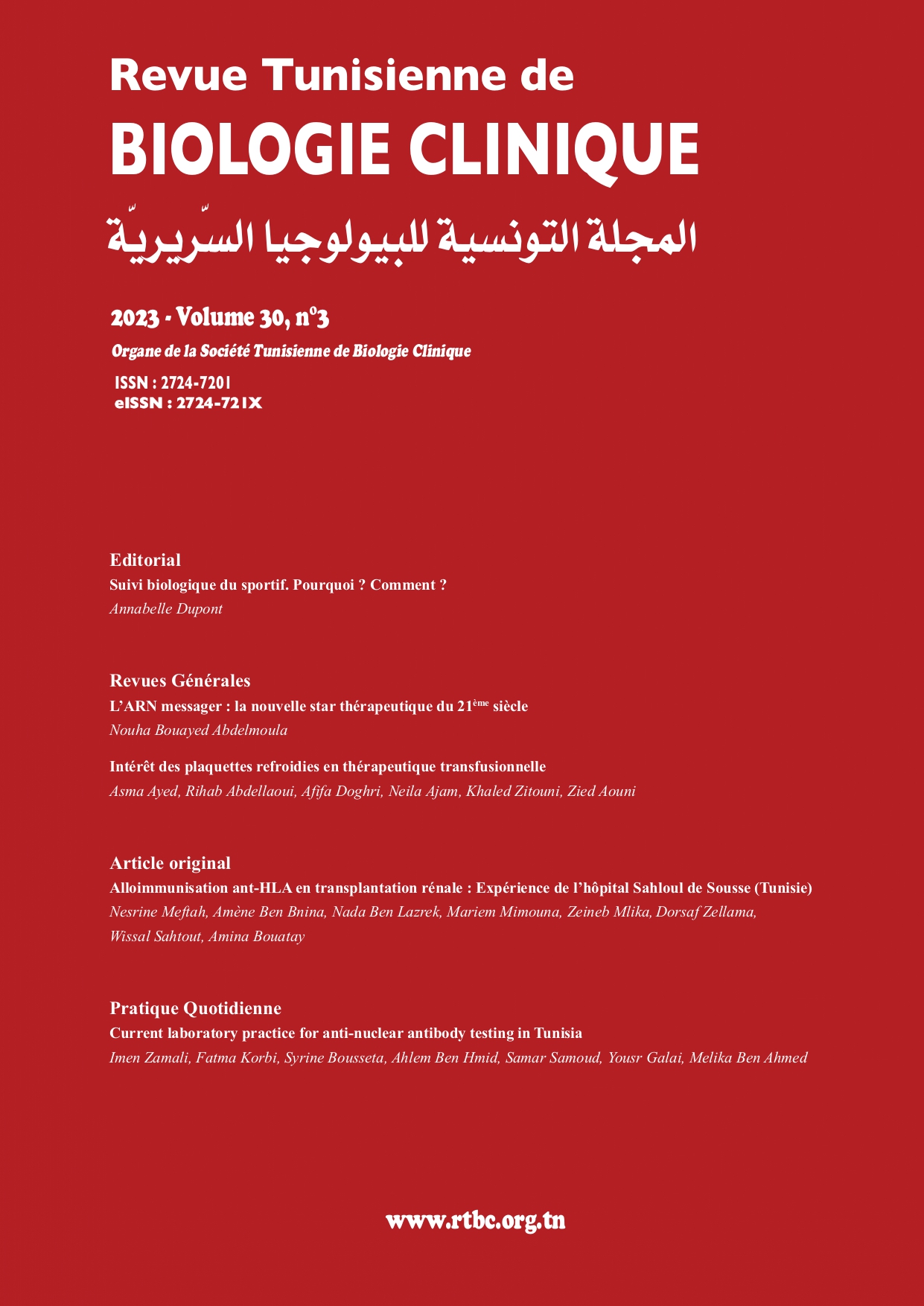Abstract
Introduction: Successful renal transplantation and graft survival depends on the control of anti-Human Leukocyte Antigen (HLA) alloimmunization. The objective of this work was to describe the profile of anti-HLA and anti-Major Histocompatibility Complex class I chain related A (MICA) antibodies in Tunisian transplanted patients, before and after transplantation, and their association to the risk of graft dysfunction. Materials and Methods: This retrospective cross-sectional study was conducted at University Hospital of Sahloul, Sousse, Tunisia on 110 patients who received a kidney transplant between January 2015 and December 2020. Anti-HLA antibodies have been detected only by Luminex™ technology. Results: The median age of renal transplant recipients was 29.5 years. Ninety-two-point four percent (92.4%) of patients were transplanted from a living donor. Pre-transplant alloimmunization against HLA antigens was found in 43.2% (32/74) of cases. Preformed anti-MICA was noted in 23% of cases. Sixty-two-point five percent (62.5%) of the transplant recipients had anti-HLA antibodies after three years post renal transplantation. De novo anti-HLA antibodies were detected in 92.1% of patients who were not sensitized prior to transplantation. De novo donor-specific antibodies (DSA) were found in 25.8% of cases after a median delay of 67 weeks post-transplant. These de novo DSA were directed against HLA class II antigens in the majority of cases. It is worthy to mention that there was no association between serum urea and creatinine levels and anti-HLA antibodies after transplantation. Conclusion: Despite the implementation of highly sensitive techniques for the detection of HLA antibodies including Luminex™ technology, HLA alloimmunization remains a major obstacle to a successful renal transplantation taking into account the real risk of humoral rejection related to these types of antibodies.

This work is licensed under a Creative Commons Attribution 4.0 International License.
Copyright (c) 2023 Revue Tunisienne de BIOLOGIE CLINIQUE

